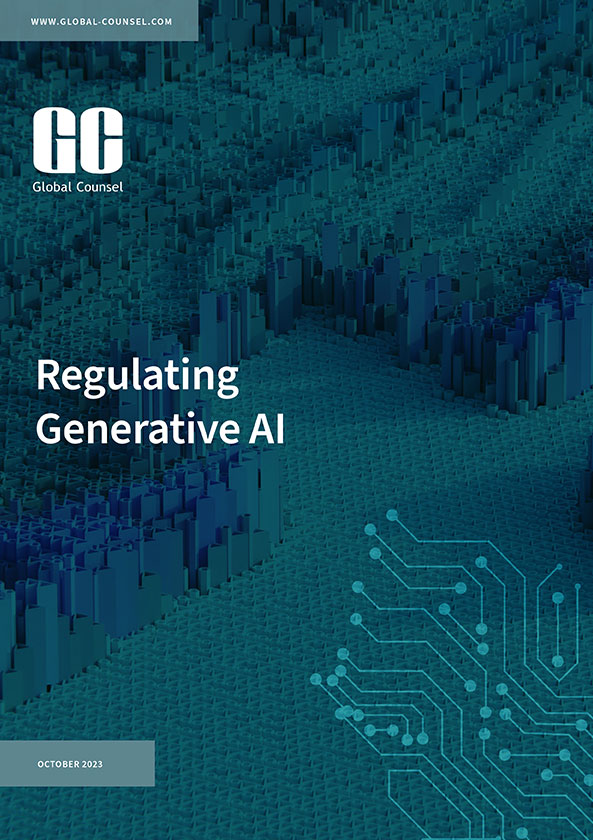Date
Regulating Generative AI
By
Share
Over the decade in which Global Counsel has analysed global technology policy, Artificial Intelligence (AI) has persisted as the regulatory challenge with the greatest resonance both to the technology sector, but also almost every other sector of the economy.
The legal, ethical and economic questions raised by AI are as pertinent for the companies developing AI models and systems, as they are for the deployers of AI in financial services, manufacturing and in the public sector.
In 2019, we hosted our flagship Politics of AI conference which looked at the global debate around cross-cutting AI governance principles. These were ultimately consolidated into the OECDs AI Principles, which have acted as the benchmark for global AI governance ever since. In the years following, where there was divergence, this was typically over how to apply these principles rather than whether to apply them at all.
The launch of ChatGPT in November 2022 shattered this consensus. It is the closest that the technology sector has come to an iPhone Moment since the smartphone transformation of the late 2000s. However, the impact of ChatGPT goes well beyond the smartphone experience, in that it has not only disrupted the commercial, investor and technological landscapes, but also immediately transformed policy, regulatory and legislative debates.
This change coincides with political upheaval in Europe and North America in 2024, with elections in the US, the EU and (likely) the UK. These act naturally both as a break on current policy initiatives but also the starting point of a new political and policy cycle in which debates over generative AI will be played out.
The objective of this report is to understand the likely direction of travel for regulation during the next political cycle from 2024 till 2028/29. It is not intended as a contribution to live regulatory debates over initiatives such as the EUs AI Act but looks ahead to the next US administration, European Commission and British government. The report specifically looks at generative AI, with clear implications for foundation models, large language models and frontier AI, but does not assess narrower AI models and systems. This is both for reasons of brevity and analytical consistency, but more importantly because it is generative AI and the reaction to it which will drive policymaking in the coming years.
The report combines original research with insights and perspectives from Global Counsels policy specialists in technology, financial services and healthcare, as well as teams on the ground in Washington DC, Brussels, Berlin and London.
The views expressed in this report can be attributed to the named author(s) only.
